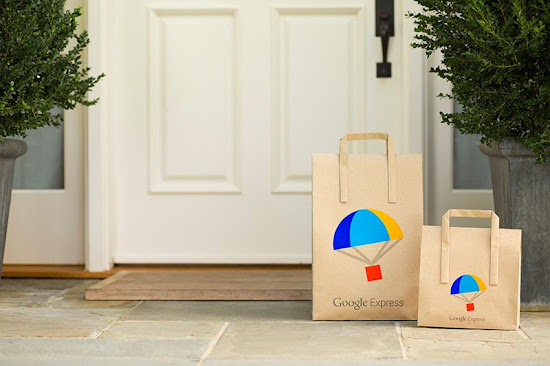Who is Amazon.com's (AMZN -2.56%) biggest rival?
It's not such an easy question to answer.
In its fledgling bookseller days, it was probably Barnes & Noble. Now that it's grown into a retail juggernaut, it might be Wal-Mart, the world's largest retailer. And with its forays into digital media, Amazon has also rubbed up against Netflix and Apple.
More and more recently, however, Google (GOOG -1.10%) (GOOGL -1.23%) is presenting itself as Amazon's biggest obstacle to Internet dominance as the two face off in areas such as product searches and e-commerce.
As Google Executive Chairman Eric Schmidt put it in October, "Many people think our main competition is Bing or Yahoo!. But really, our biggest search competitor is Amazon. People don't think of Amazon as search, but if you are looking for something to buy, you are more often than not looking for it on Amazon. They are obviously focused on more of the commerce side of the equation, but at their roots they're answering users' questions and searches, just as we are."
It's no surprise to see Google fiercely defending its turf. After all, digital ads make 90% up of its revenue , but what might be surprising is how Amazon has turned the tables on Google in product search. In 2009, just 18% of online shoppers began searching for a product to purchase by going to Amazon, while a quarter used a search engine. More recently, Amazon has gained a third of product searches, compared to just 13% for search engines. The reason for this shift is that Amazon is designed for purchasing a product, giving it a natural advantage, while Google is intended for collecting information.
Amazon is more and more targeting the same audience as Google, which helps explain why it launched the Fire smartphone, a move that was designed more to lock in relationships with its best customers and gather data rather than sell phones. That ambition may explain why Amazon launched the phone despite the heavy competition it faced.
How Google is fighting back
While the search rivalry has been brewing for several years, Google has recently taken steps to increase its e-commerce offerings in order to stave off Amazon's threat. In October, Google announced it was expanding its same-day delivery service, Google Express, to Chicago, Boston, and Washington, D.C., as well as adding alcohol to its service in the Bay Area.

Source: Google official blog.
The same-day delivery service launched last year, and Google recently invested $500 million to expand the service nationally along with signing up a number of big-name merchants including Costco, Whole Foods and Walgreen. Google Express is a clear bid to swipe away potential Amazon Prime customers as well as challenge Amazon Fresh, the e-retailer's grocery delivery service slowly being rolled out to cities across the country. A Google Express membership costs $95 a year, similar to Amazon Prime's $99 price tag, and customers pay the same price for products as they would in the store. Same-day delivery on Google Express is free with a membership, or $4.99 without one.
The search battle
In an attempt to thwart Amazon's assault, Google refashioned its search page in 2012 to make shopping results more prevalent, including pictures, descriptions and prices of products from a number of online vendors, borrowing a page out of Amazon's playbook. Noticeably absent from the results, however, is Amazon, which refuses to pay for the ads. Google calls these "product-listed ads" and they've been 34% more likely to get clicks then regular ads. The PLAs have helped stop a decline in product searches on Google, but Amazon still appears to have the edge, here, as Amazon is designed for this kind of search, and it has a larger third-party network and more data. Having users credit card data and addresses on hand, as Amazon usually does, is also big advantage in mobile shopping.
In many ways, Google's competing with Amazon on e-commerce is like Amazon trying to make inroads on search. Each one has a significant competitive advantage in their respective core areas, and it's likely to stay that way, at least for the near future. But Google's advance is also a signal that e-commerce has become a more attractive space as it has grown. Wal-Mart, for example, is expected to grow its e-commerce sales 25% this year to $12.5 billion and is investing $1 billion this year in online fulfillment centers, systems, and acquisitions to fuel the push.
Like Wal-Mart, Google also has deep pockets, and the company has shown it's not afraid to spend money on pet projects that may seem like flights of fancy. In fact, like Amazon, Google is testing delivery drones, and it has successfully completed a delivery with them in Australia, though regulatory obstacles may render drone delivery unrealistic.
Still, Google has beaten Amazon to the punch in at least one important delivery capability: Only Google Express offers free same-day delivery. That may not hurt Amazon as a whole, but it could certainly dampen the prospects for one of Amazon's most important growth opportunities: Amazon Fresh.





